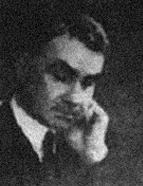

He contributed to newspapers such as Novidades (of the Patriarchate of Lisbon), Correio de Coimbra (of the Diocese of Coimbra), Diário da Manhã (of the National Union) and Voz; the journal Estudos (published by the CADC in Coimbra) and in scientific and/or technological periodicals (Coimbra Médica, Higiene e Hidrologia, Biblos, Arquivo Pedagógico, Saúde Escolar). He also edited monographs on hygiene and epidemiology, ‘social medicine’ and school health, religion and ‘moral hygiene’, sociology and pedagogy, history and the teaching of history. Of particular note are A hereditariedade da sífilis (The Heredity of Syphilis, 1897), O alcoolismo (Alcoholism, 1898), O catolicismo e a higiene (Catholicism and Hygiene, 1918), “A história à luz da sciência social” (History in the Light of Social Science, 1926), Social Science in Education and History (1926), A Good Education Must Be National (1928), The Study of History (1929), National Education (1938), Questions of Education (1949), Fundamental Ideas on Primary School (1952).
He sought to promote the dissemination of “experimental sociology” in Portugal, and was associated with the studies carried out here by Léon Poinsard and Paul Descamps. Even with this background, in the 1930s and 1960s, the Salazar dictatorship viewed this area of knowledge as a threat and excluded it from the research and higher education system. Perhaps because he adopted an essayistic approach resulting from his self-taught background ( ) , both in sociology and historiography, João Serras e Silva was mainly influenced by authors and works published in French — of French, Belgian and Polish origin — and in English.
Having reached intellectual maturity at a time when, in Portugal as in more developed countries, a socio-professional group of researchers and/or history teachers, mostly with undergraduate and postgraduate degrees in history, had not yet been established, João Serras e Silva taught at FLUC from 1920/1921 to 1932/1933, the core subject of Portuguese Discoveries and Colonisation. He always defended an interpretative and structural historiography – research, teaching and dissemination – that was globalising but ‘enlightened nationalist’, influenced by the epistemological and theoretical assumptions of ‘Catholic positivism’ and even critical idealism. He did not advocate – or even refused – the adoption of neo-methodical historicism as the official historiographical trend of the Estado Novo.
This work is financed by national funds through FCT - Foundation for Science and Technology, I.P, in the scope of the projects UIDB/04311/2020 and UIDP/04311/2020.
